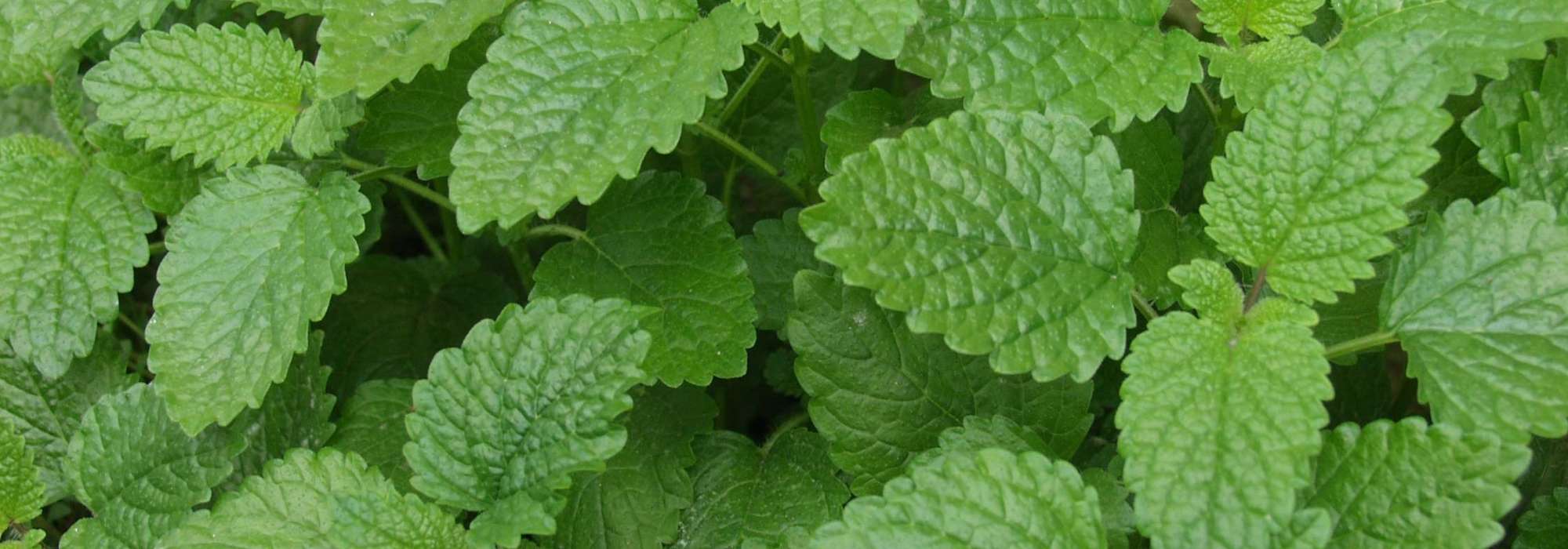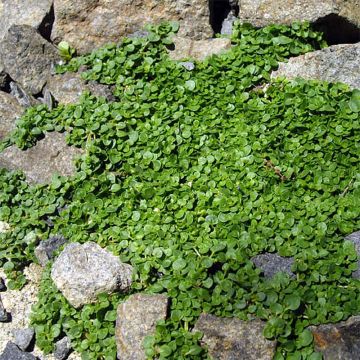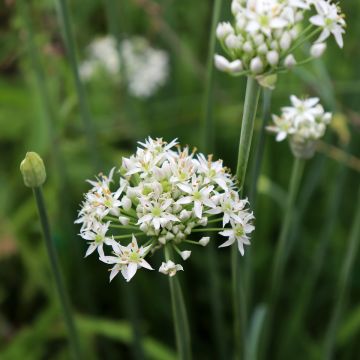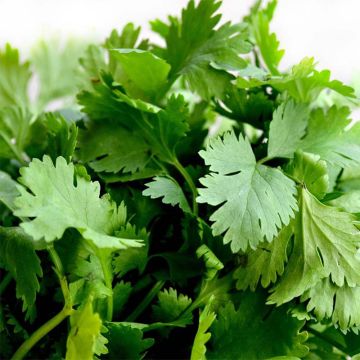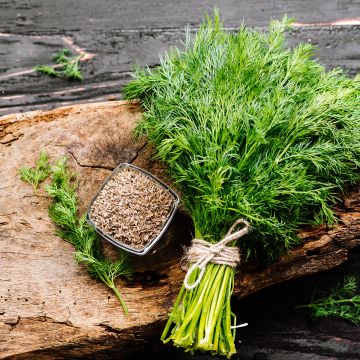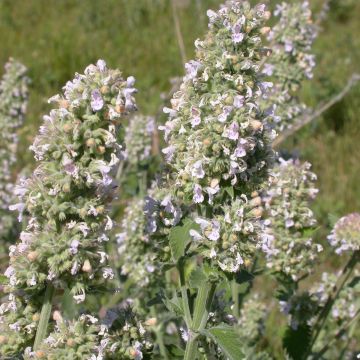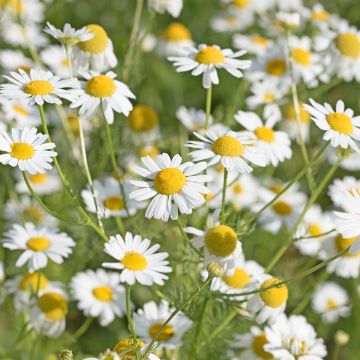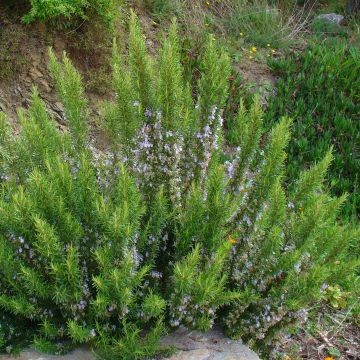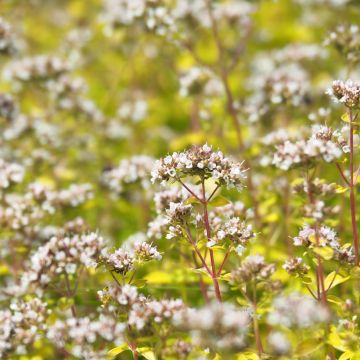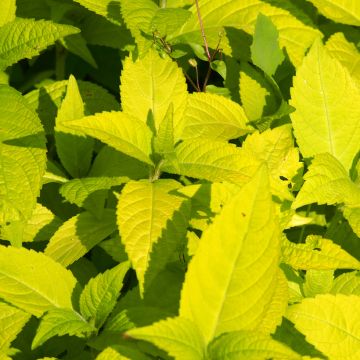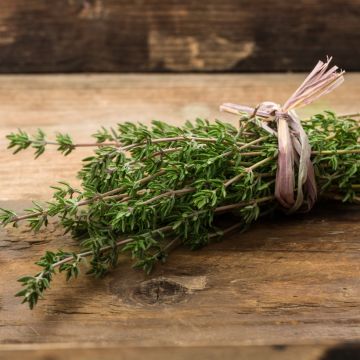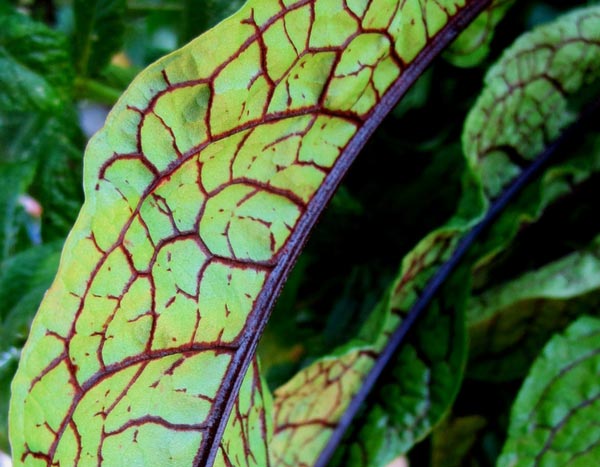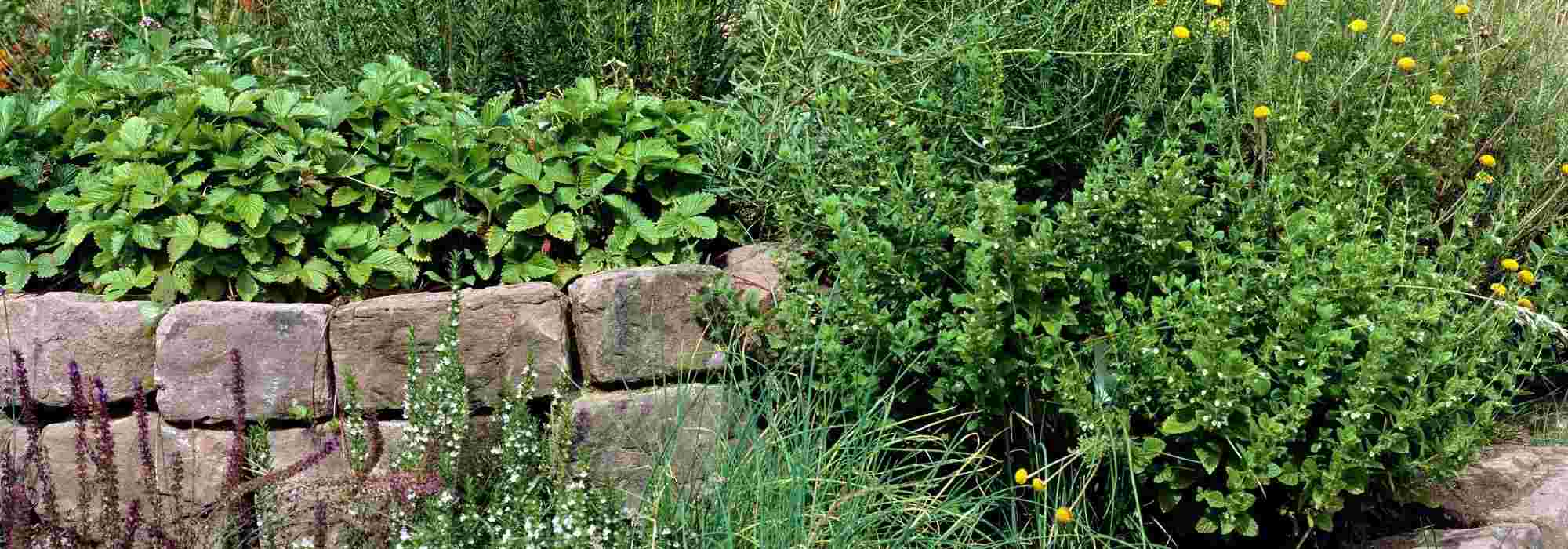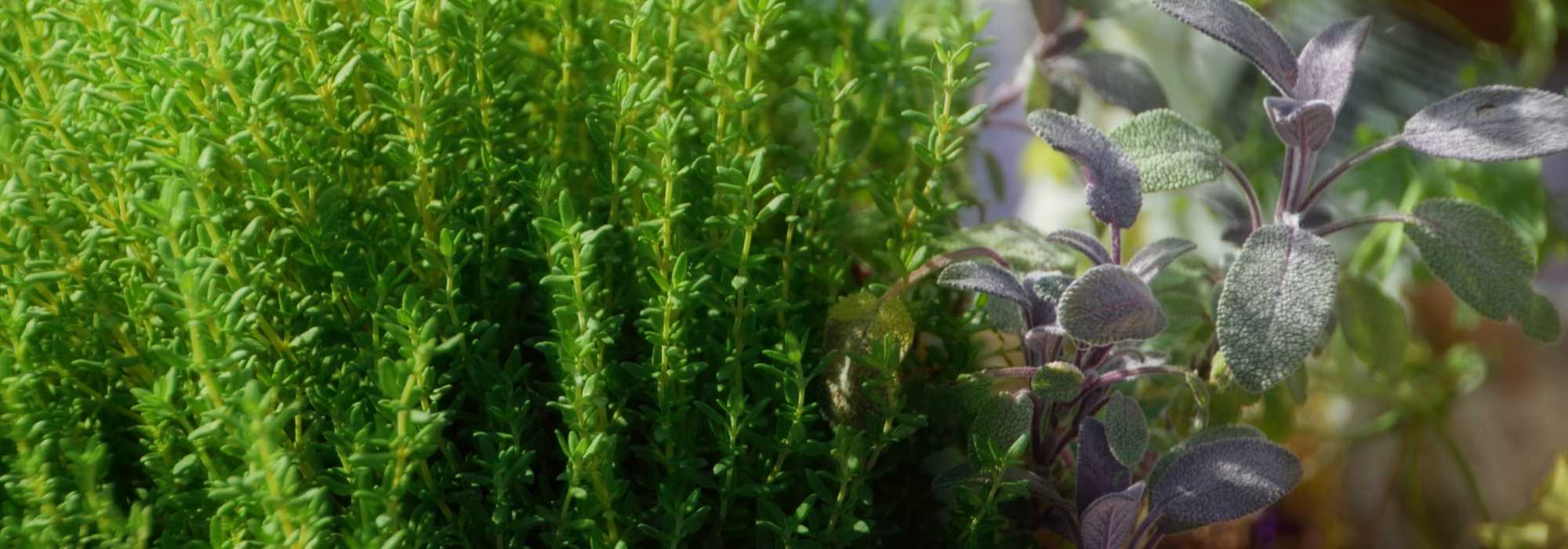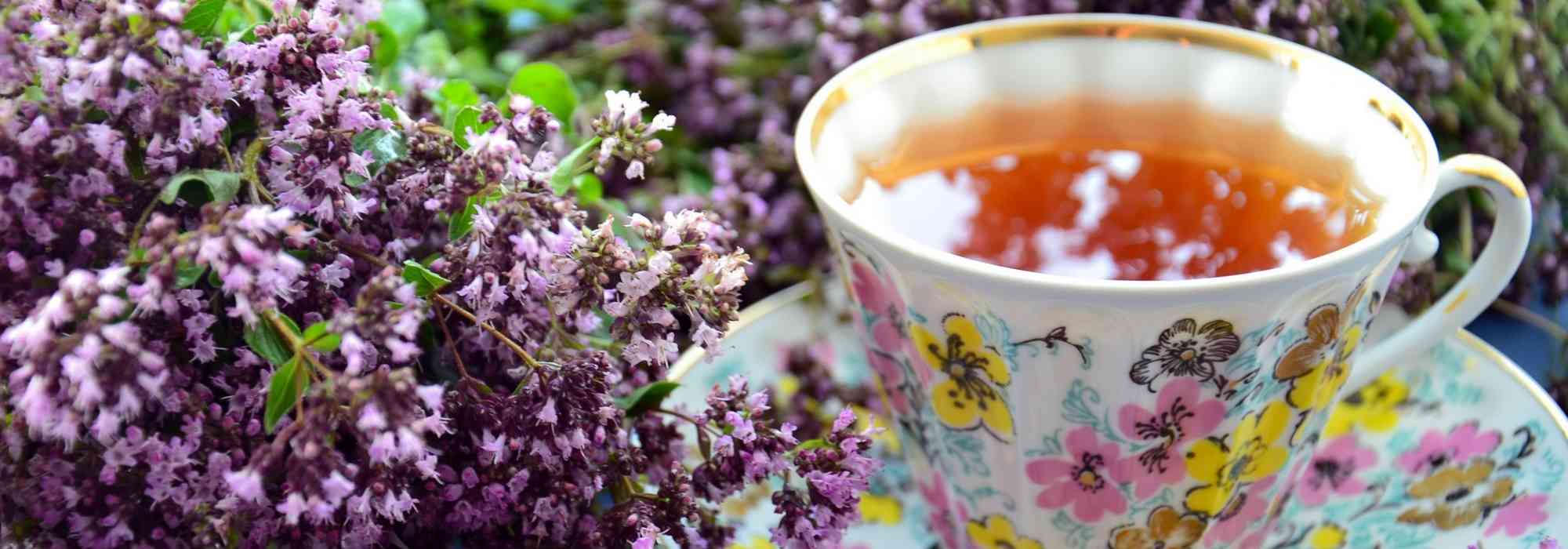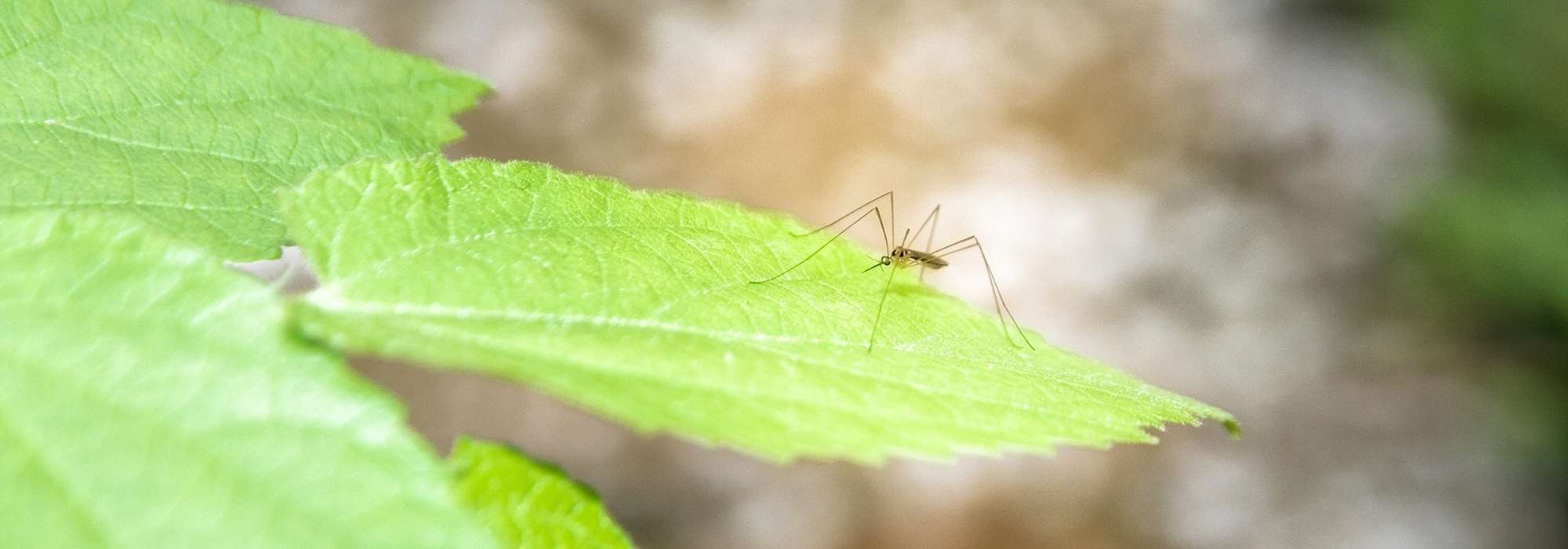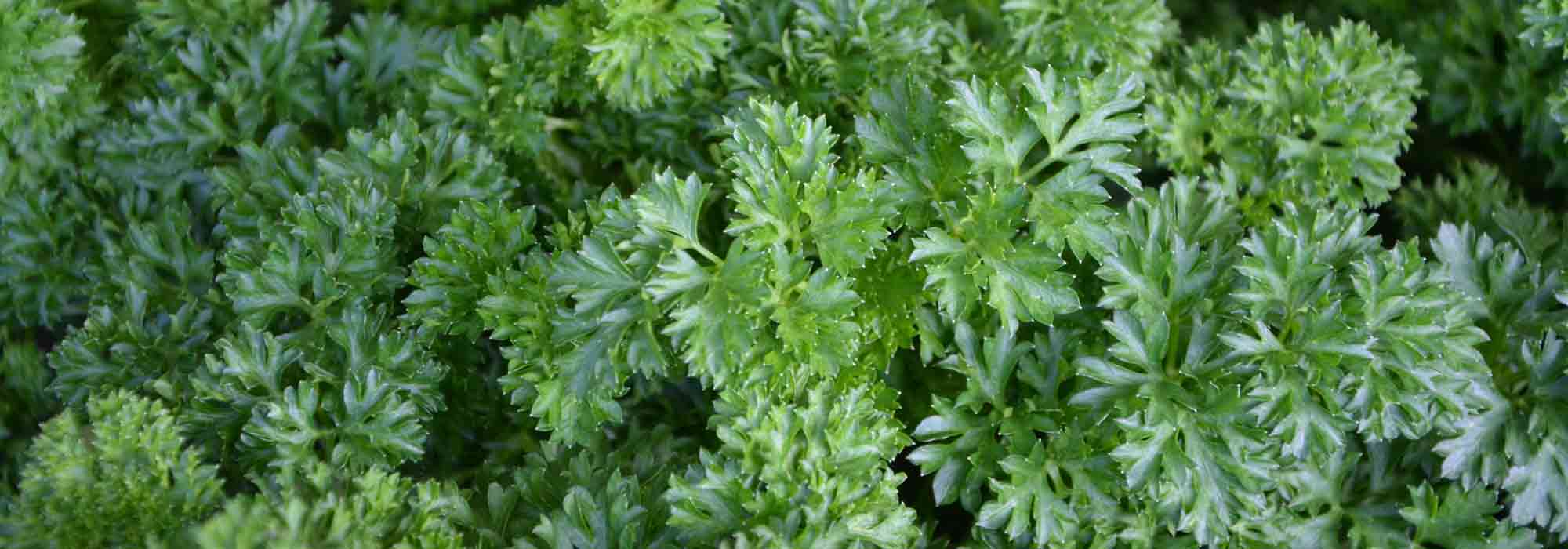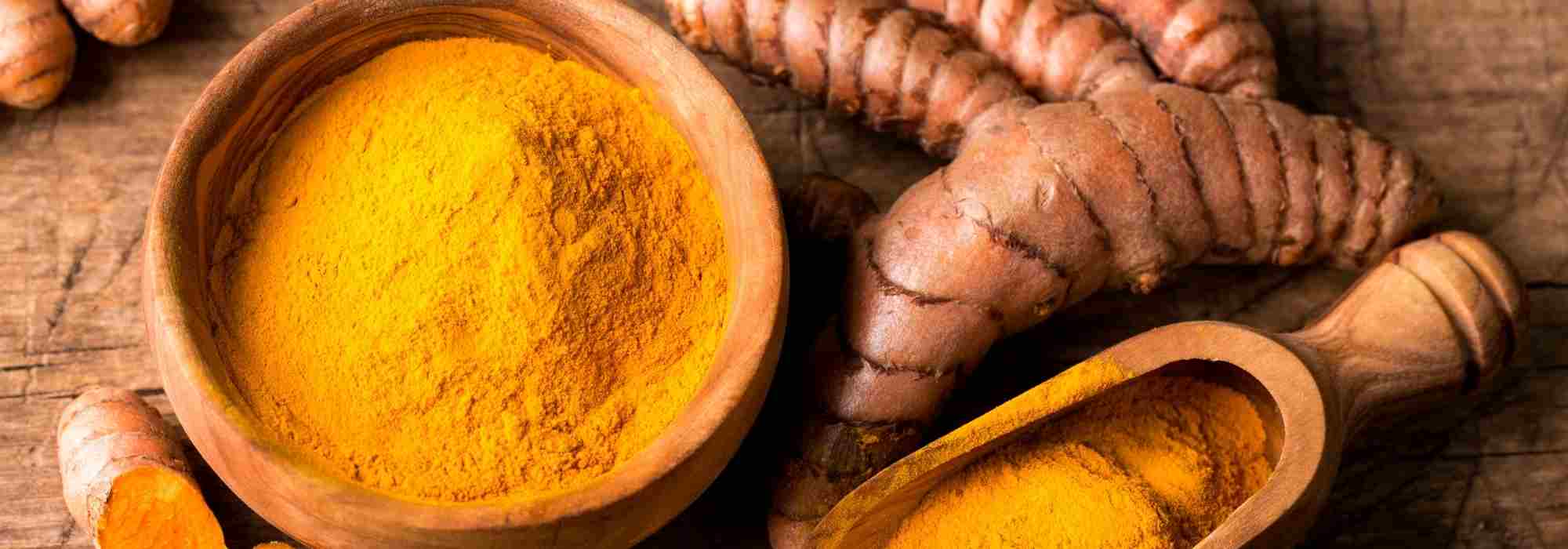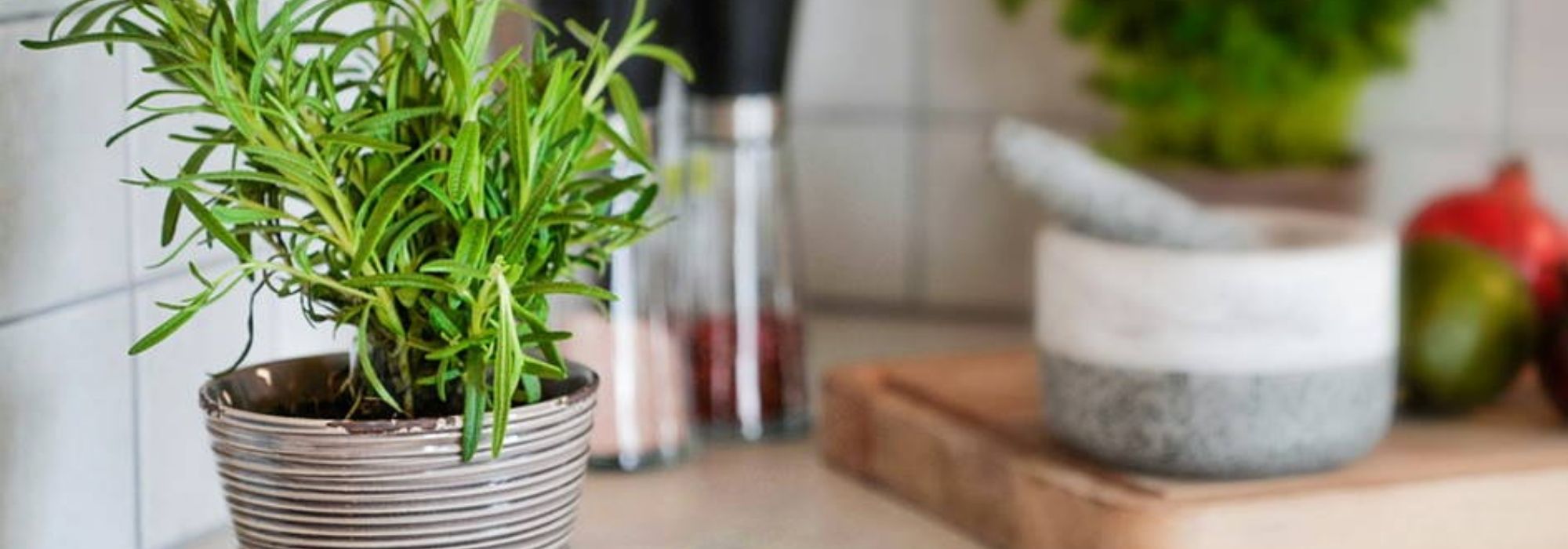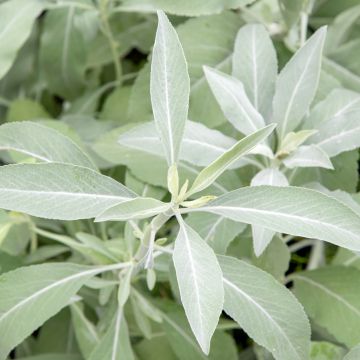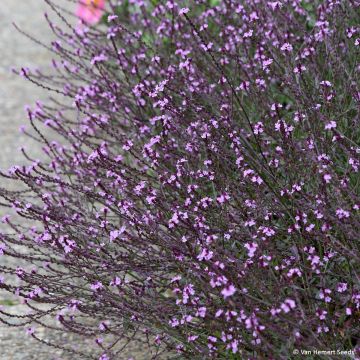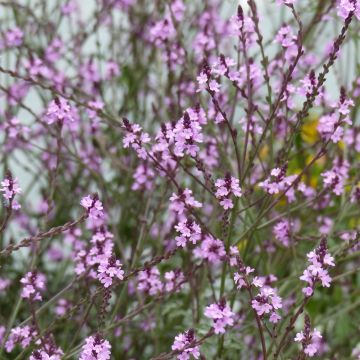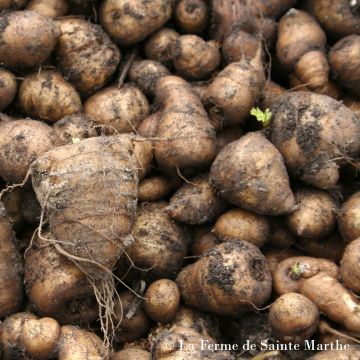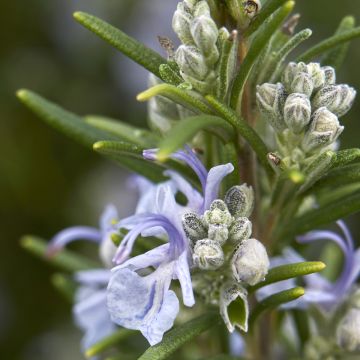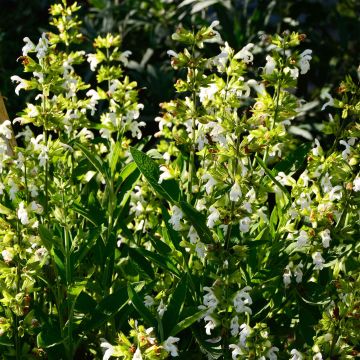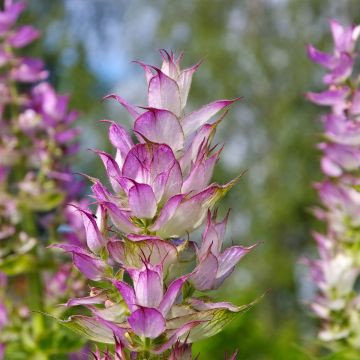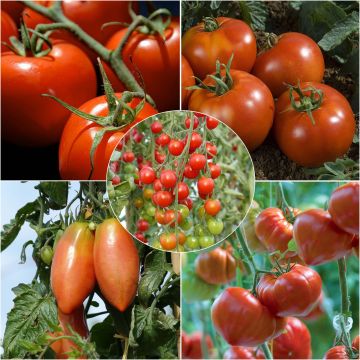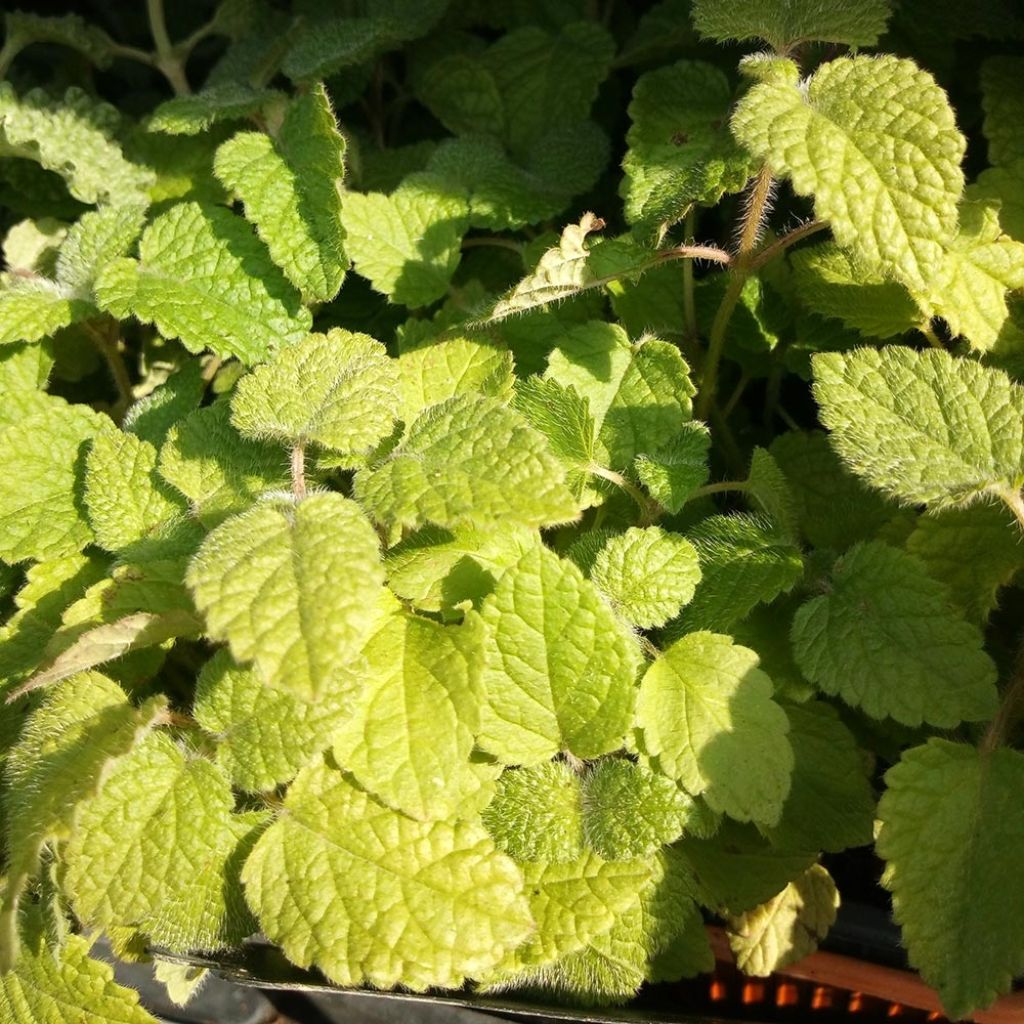

Melissa officinalis subsp. altissima
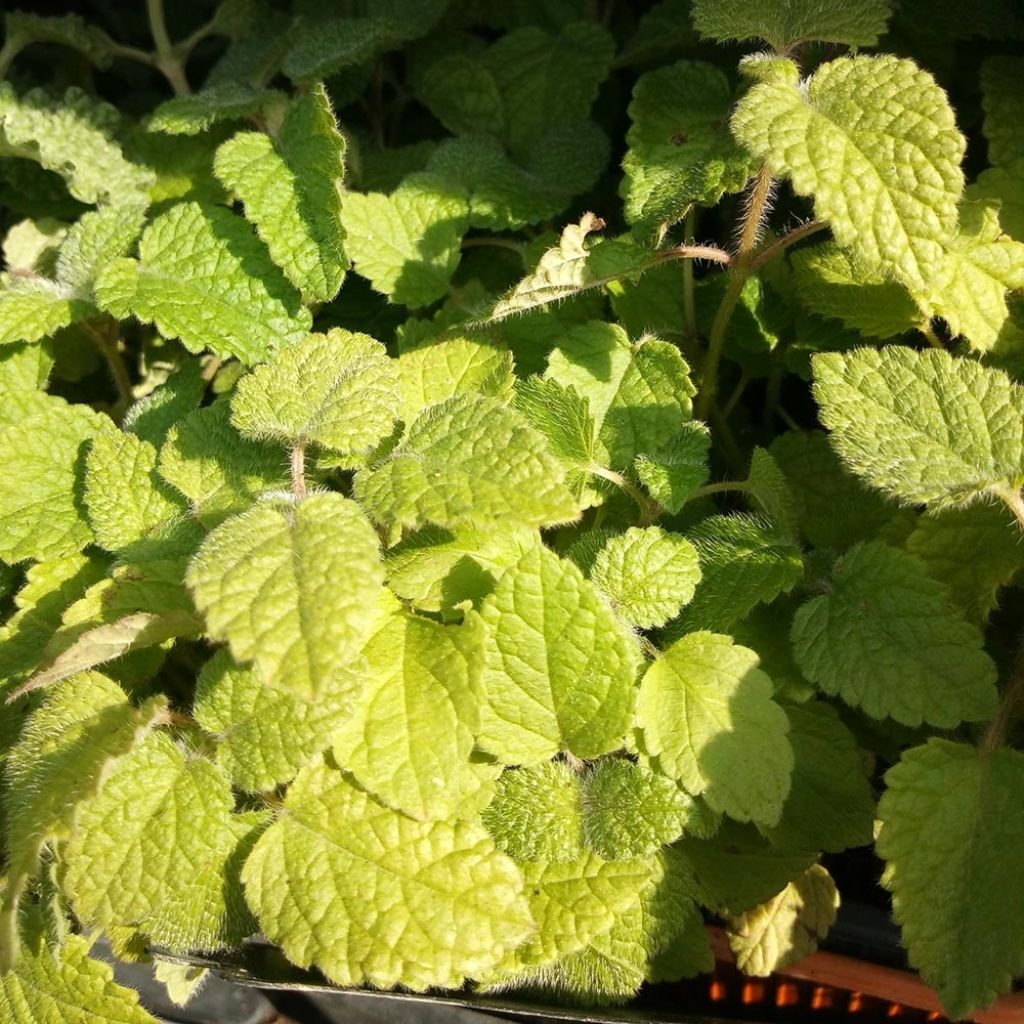

Melissa officinalis subsp. altissima
Melissa officinalis subsp. altissima
Melissa officinalis Altissima
Lemon Balm
Vigorous young plant, kept its leaves all winter despite frequent frosts, good recovery at the beginning of the year.
Elise , 25/03/2025
Special offer!
Receive a €20 voucher for any order over €90 (excluding delivery costs, credit notes, and plastic-free options)!
1- Add your favorite plants to your cart.
2- Once you have reached €90, confirm your order (you can even choose the delivery date!).
3- As soon as your order is shipped, you will receive an email containing your voucher code, valid for 3 months (90 days).
Your voucher is unique and can only be used once, for any order with a minimum value of €20, excluding delivery costs.
Can be combined with other current offers, non-divisible and non-refundable.
Home or relay delivery (depending on size and destination)
Schedule delivery date,
and select date in basket
This plant carries a 6 months recovery warranty
More information
We guarantee the quality of our plants for a full growing cycle, and will replace at our expense any plant that fails to recover under normal climatic and planting conditions.

Description
Melissa officinalis subsp. altissima, also known as orange balm or orange-scented lemon balm, is a branching shrubby plant. This honey-bearing perennial is appreciated for the orange fragrance and mandarin flavour of its foliage. It is a robust perennial that is aromatic, condimental, and medicinal. It is very easy to cultivate in any type of soil, even poor and dry in summer. Its leaves will add a delicious note to your herbal teas and fruit salads. It is also used to flavour liqueurs. Plant it in spring or autumn and harvest it from April to October.
Lemon Balm is a very hardy and frugal plant, native to the eastern Mediterranean basin. It belongs to the Lamiaceae family, like mint, thyme, sage, or lavender. It is an herbaceous plant with a perennial base, whose above-ground growth emerges in spring and dries out in summer or autumn depending on the climate. Its name comes from the Greek word "melissa," which means 'bee,' alluding to its extremely nectar-rich and honey-like flowering. The name lemon balm refers to the lemon scent of its leaves, ideal for repelling mosquitoes in summer!
Melissa officinalis subsp. altissima is a subspecies native to Crete. It differs from the usual species by its thicker leaves, larger light lavender flowers, and the odour of its vegetation, described as foetid, but with surprising orange fragrances and a pronounced flavour reminiscent of mandarin. This branching and ramified plant can easily reach 80cm (32in) in all directions, its weakly suckering stump widening over the years. Its quadrangular and sturdy stems emerge from the ground in spring. They bear small, thick, hairy, wavy, triangular, light green leaves, which are aromatic when crushed. Flowering occurs more or less early depending on the climate, from May to July. Small, pale-mauve bilabiate flowers appear at the upper part of the stems, at the axils of the leaves. They are popular with pollinating insects. The flowers give way to tiny seeds that easily germinate in the garden. In warm and dry summers, the vegetation dries out shortly after flowering and the plant goes into dormancy. It will spend mild winters in the form of a very low tuft of leaves.
If possible, plant your orange balm in a somewhat isolated place as it will expand and could encroach on neighbouring plants. To prevent the balm from becoming invasive, remember to prune it during flowering. It is a very hardy plant that can thrive almost anywhere. It also grows well in pots, allowing you to control its spread.
In terms of cuisine, fresh or dried leaves add an orange note to infusions, salads, desserts, and liqueurs. When taken as an infusion before bedtime, orange balm has sedative properties, promoting relaxation and sleep. When rubbed, fresh leaves are recommended for repelling mosquitoes and relieving wasp, scorpion, and bee stings.
Harvest: Leaves can be harvested from April to October, as needed. Its aromatic qualities are concentrated in May-June (depending on the region). If you want to dry the leaves, cut the stems when they are in bud.
Storage: Consume the leaves fresh to fully enjoy their fragrance. You can freeze them for longer storage.
Melissa officinalis subsp. altissima in pictures


Harvest
Plant habit
Foliage
Other Herbs A to Z
View all →Planting and care
Orange balm is satisfied with any well-drained garden soil, even poor and rocky, including limestone. It adapts to the climate. In cold regions, it emerges in spring and flowers in summer, in moist soils. In warm regions, it will flower earlier and its vegetation will dry up in summer, re-emerging as rosettes in autumn. Its hardiness and robustness means it can establish itself anywhere. Plant in spring or autumn. Dig a hole (3 times the volume of the root ball), place the root ball and cover with fine soil. Tamp lightly and water to keep the soil moist. Be vigilant about snails and slugs that may nibble on young shoots. If necessary, place ash or coffee grounds nearby to keep the pests at bay.
Water primarily in case of high temperatures if you want to continue harvesting foliage and prevent the plant from entering early dormancy if the summer is dry. Prune regularly before or at the beginning of flowering to prevent spontaneous seeding. Cut the stems, before frosts and at the end of spring, to promote the emergence of new leaves. This plant tends to spread over time, so it will be necessary to contain it to prevent it from harming its neighbours.
You can propagate balm by dividing the clumps, in spring or autumn. This division should be done every 5 years or regularly for pot cultivation.
Cultivation
Care
Intended location
Planting & care advice
-
, onOrder confirmed
Reply from on Promesse de fleurs
Similar products
Haven't found what you were looking for?
Hardiness is the lowest winter temperature a plant can endure without suffering serious damage or even dying. However, hardiness is affected by location (a sheltered area, such as a patio), protection (winter cover) and soil type (hardiness is improved by well-drained soil).

Photo Sharing Terms & Conditions
In order to encourage gardeners to interact and share their experiences, Promesse de fleurs offers various media enabling content to be uploaded onto its Site - in particular via the ‘Photo sharing’ module.
The User agrees to refrain from:
- Posting any content that is illegal, prejudicial, insulting, racist, inciteful to hatred, revisionist, contrary to public decency, that infringes on privacy or on the privacy rights of third parties, in particular the publicity rights of persons and goods, intellectual property rights, or the right to privacy.
- Submitting content on behalf of a third party;
- Impersonate the identity of a third party and/or publish any personal information about a third party;
In general, the User undertakes to refrain from any unethical behaviour.
All Content (in particular text, comments, files, images, photos, videos, creative works, etc.), which may be subject to property or intellectual property rights, image or other private rights, shall remain the property of the User, subject to the limited rights granted by the terms of the licence granted by Promesse de fleurs as stated below. Users are at liberty to publish or not to publish such Content on the Site, notably via the ‘Photo Sharing’ facility, and accept that this Content shall be made public and freely accessible, notably on the Internet.
Users further acknowledge, undertake to have ,and guarantee that they hold all necessary rights and permissions to publish such material on the Site, in particular with regard to the legislation in force pertaining to any privacy, property, intellectual property, image, or contractual rights, or rights of any other nature. By publishing such Content on the Site, Users acknowledge accepting full liability as publishers of the Content within the meaning of the law, and grant Promesse de fleurs, free of charge, an inclusive, worldwide licence for the said Content for the entire duration of its publication, including all reproduction, representation, up/downloading, displaying, performing, transmission, and storage rights.
Users also grant permission for their name to be linked to the Content and accept that this link may not always be made available.
By engaging in posting material, Users consent to their Content becoming automatically accessible on the Internet, in particular on other sites and/or blogs and/or web pages of the Promesse de fleurs site, including in particular social pages and the Promesse de fleurs catalogue.
Users may secure the removal of entrusted content free of charge by issuing a simple request via our contact form.
The flowering period indicated on our website applies to countries and regions located in USDA zone 8 (France, the United Kingdom, Ireland, the Netherlands, etc.)
It will vary according to where you live:
- In zones 9 to 10 (Italy, Spain, Greece, etc.), flowering will occur about 2 to 4 weeks earlier.
- In zones 6 to 7 (Germany, Poland, Slovenia, and lower mountainous regions), flowering will be delayed by 2 to 3 weeks.
- In zone 5 (Central Europe, Scandinavia), blooming will be delayed by 3 to 5 weeks.
In temperate climates, pruning of spring-flowering shrubs (forsythia, spireas, etc.) should be done just after flowering.
Pruning of summer-flowering shrubs (Indian Lilac, Perovskia, etc.) can be done in winter or spring.
In cold regions as well as with frost-sensitive plants, avoid pruning too early when severe frosts may still occur.
The planting period indicated on our website applies to countries and regions located in USDA zone 8 (France, United Kingdom, Ireland, Netherlands).
It will vary according to where you live:
- In Mediterranean zones (Marseille, Madrid, Milan, etc.), autumn and winter are the best planting periods.
- In continental zones (Strasbourg, Munich, Vienna, etc.), delay planting by 2 to 3 weeks in spring and bring it forward by 2 to 4 weeks in autumn.
- In mountainous regions (the Alps, Pyrenees, Carpathians, etc.), it is best to plant in late spring (May-June) or late summer (August-September).
The harvesting period indicated on our website applies to countries and regions in USDA zone 8 (France, England, Ireland, the Netherlands).
In colder areas (Scandinavia, Poland, Austria...) fruit and vegetable harvests are likely to be delayed by 3-4 weeks.
In warmer areas (Italy, Spain, Greece, etc.), harvesting will probably take place earlier, depending on weather conditions.
The sowing periods indicated on our website apply to countries and regions within USDA Zone 8 (France, UK, Ireland, Netherlands).
In colder areas (Scandinavia, Poland, Austria...), delay any outdoor sowing by 3-4 weeks, or sow under glass.
In warmer climes (Italy, Spain, Greece, etc.), bring outdoor sowing forward by a few weeks.






























